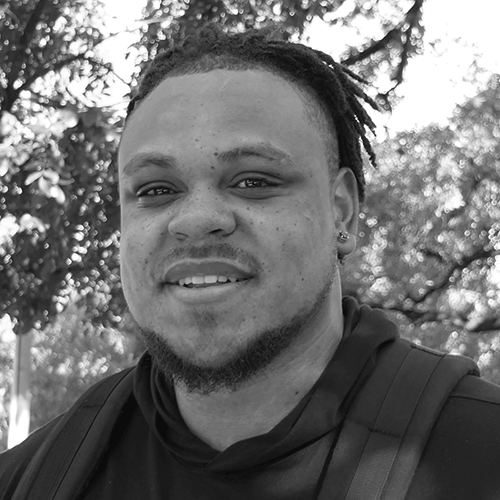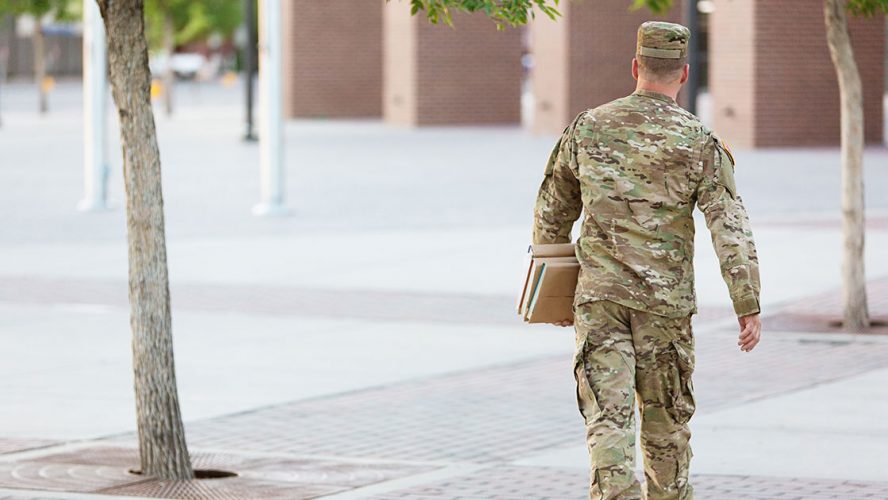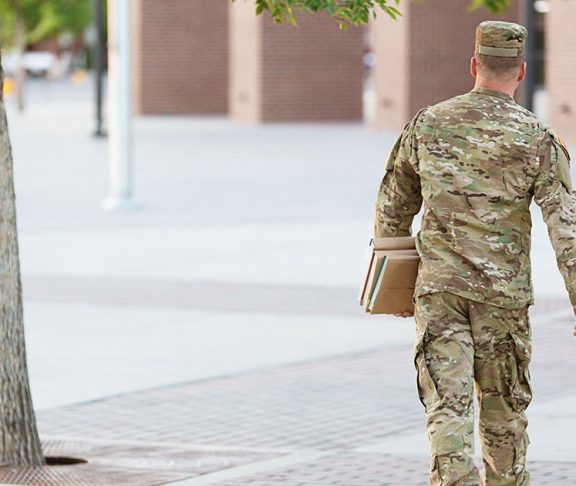
Justin Young
Technical Sergeant (E-6) of the Air Force, Student, City University of Seattle
Describe how you assimilated into academia and how you related to your (non-military) peers? How did you find the transition into schooling? What was the best way to get your mindset back into it?
Academia for me has always been one of my highest priorities. In fact, one of the main reasons I joined the military was to get financial assistance for my educational goals. Studying online, I haven’t had the chance to interact with my peers in-person, but through my discussion boards and team projects, it’s turned out perfectly fine. Most of my classmates have always been extremely respectful and in some cases very helpful. The transition into schooling was quite easy because my experience with the Air Force has always been to do your best academically, whether that be with my professional military education or university. With that being said, my mindset has always been to succeed as much as possible and I can attribute a portion of that attitude to military discipline.
What was your rapport like with faculty and school administrators? How did that impact your success within your program?
My first encounter with an advisor was very welcoming and warm. Initially, I hadn’t had many credits transfer, but when I expressed my concerns to my first advisor, they immediately corrected the situation. In addition, my military advisor, Ms. Peña has never steered me wrong, from my Veterans Affairs applications to always sending me a nice card on Memorial Day. Thank you, Ms. Peña, for ensuring I always received my benefits.
In addition, my mathematics professor, Mr. Garrin Ross, was perhaps one of my best professors. He would not only phone call to check up on me, but he was more than willing to take time out of his day to ensure I understood the course material. A large part of why I enjoyed my time here at University of Seattle was because of the small courtesies these advisors have afforded me. It makes the long-distance aspect feel less disconnected, especially when I have invested so much of my time and money!
How did you shift from a regimented military environment to the independent lifestyle that is college? Difficulties? Successes?
I’m currently still serving full time while also attending school full time online, so there wasn’t much of a shift for me. Just more to accomplish! But my education is one of my largest goals and I cannot wait to finish this chapter.
The difficulties came from the lack of regimentation. Having the option to sleep in or even take a break from a class or two can be tempting. However, the great thing about having military experience is that discipline is already instilled and adopted.
What are three key pieces of advice you would give to any incoming military personnel looking to pursue a degree in higher education?
The first piece of advice I would give is to ensure you receive the right amount of credits that you deserve. When I first applied to City University of Seattle, I had a large amount of previously earned college credits that I was afraid would not apply. At first, they didn’t, but with more investigation, it turned out they did after all.
The second piece of advice would be to feel comfortable with the university and its advisors. After all, you will be spending your money and, most importantly, your time working on your education. If a certain university isn’t committed to you, there are plenty of others to choose from. Oh, and this goes without saying, make sure the university is regionally accredited.
And my final and most important piece of advice: Get your education. If you’ve been in the military, or still are, you are entitled to your educational benefits. Don’t let excuses get in your way. Give back to yourself and your career.

Louis Iverson
U.S. Air Force Veteran, Student, University of the Incarnate World
Describe how you assimilated into academia and how you related to your (non-military) peers? How did you find the transition into schooling? What was the best way to get your mindset back into it?
The academic adaptation was the easy part. I have been taking online and night courses throughout my military career. Adjusting to the norm of being around groups of students who are several years younger than me was the most difficult part. Reaching out to classmates as well as connecting with other student veterans helped with getting back into the college mindset.
What was your rapport like with faculty and school administrators? How did that impact your success within your program?
The faculty and administrators are great communicators, and they have been easy to work with. They recognize that we, as veterans, are not traditional students and treat us with the respect of working adults while still maintaining a well-balanced and challenging curriculum. The faculty is always quite eager to help.
How did you find a sense of community on campus?
Working at the Center for Veterans Affairs was incredibly helpful for community connections. I also joined student operated programs and participated in quite a few volunteer opportunities.
What are three key pieces of advice you would give to any incoming military personnel looking to pursue a degree in higher education?
Solidify your student VA Educational Benefits as early as possible. Once you choose a university, reach-out to them, gather all the information you need and prepare your documentation early. This will make you transition smoother.
I would also recommend that students reach out to fellow student veterans. They have been there. Find someone who has had a successful academic career and ask questions pertaining to school and transitioning.
Also, give yourself time. For many veterans, it is already a tough adjustment back to civilian life and adding 12+ credit hours to your transition could make the process more stressful. Utilize all of the tools that the VA provides for financial, educational and family assistance. Ease into the process, ensuring answers to all of your questions. You will be a lot more confident and much more productive in classes.
Staff, [email protected]

